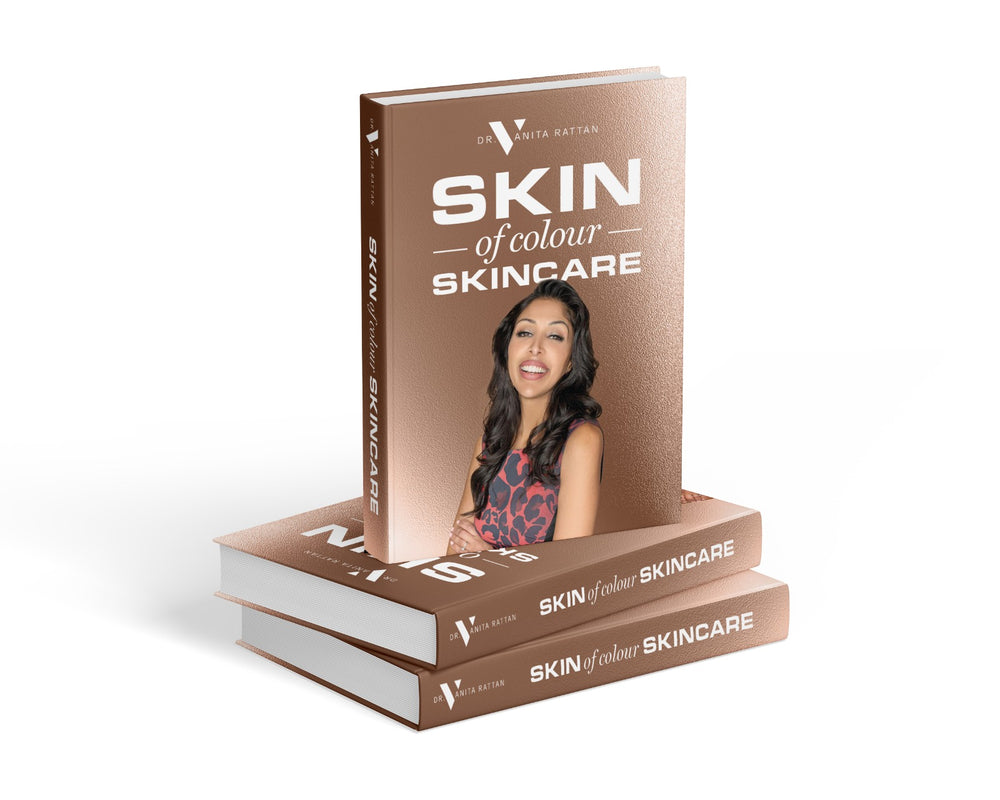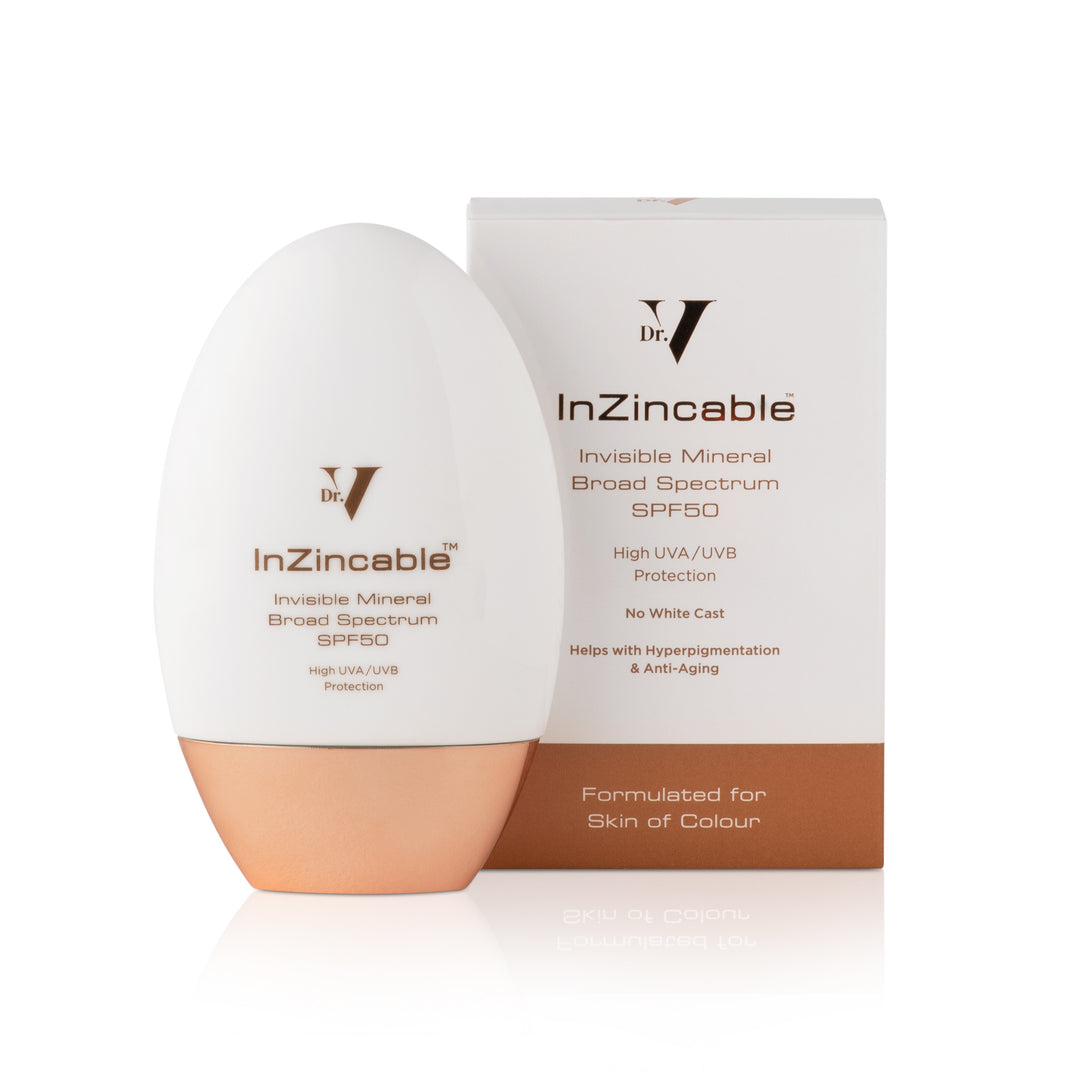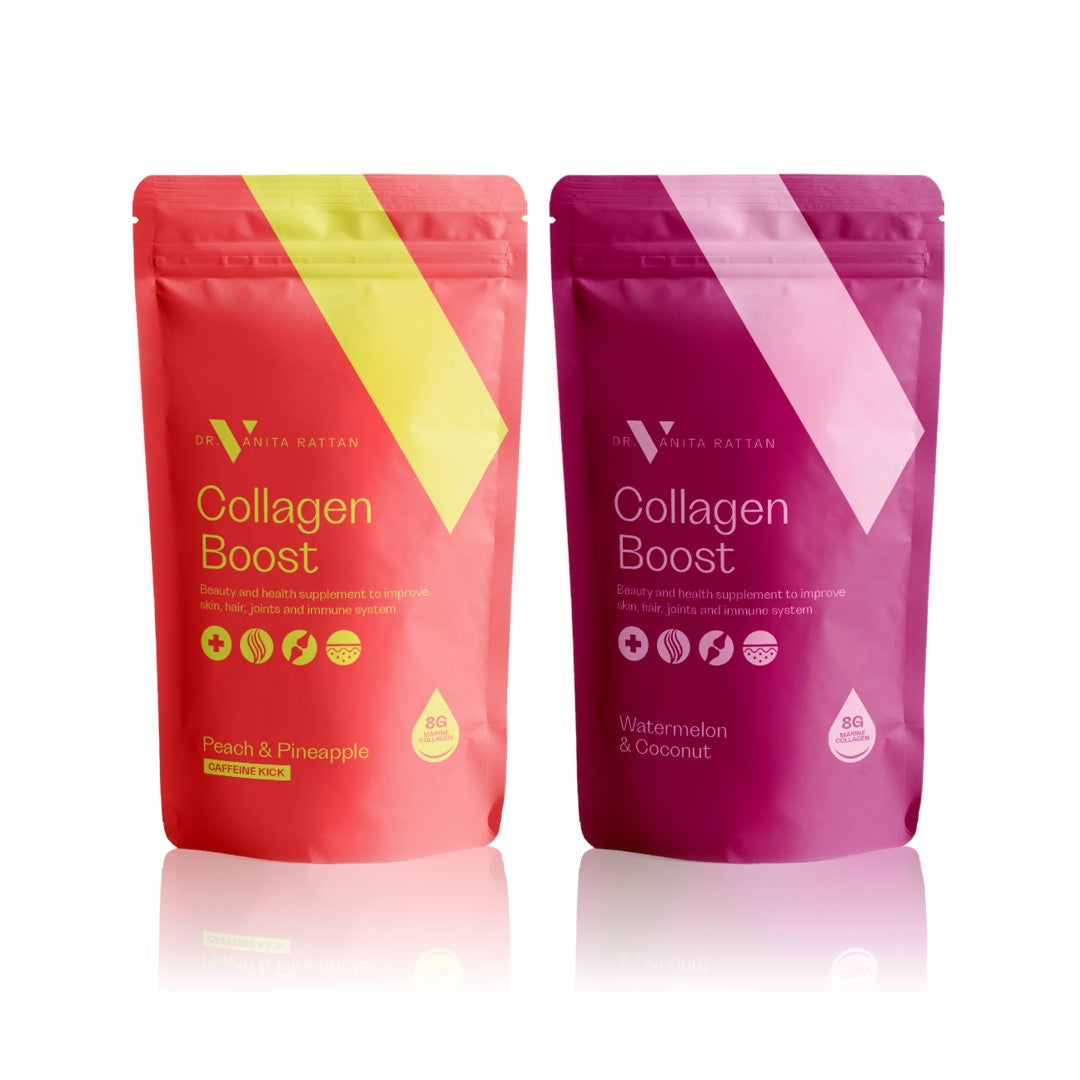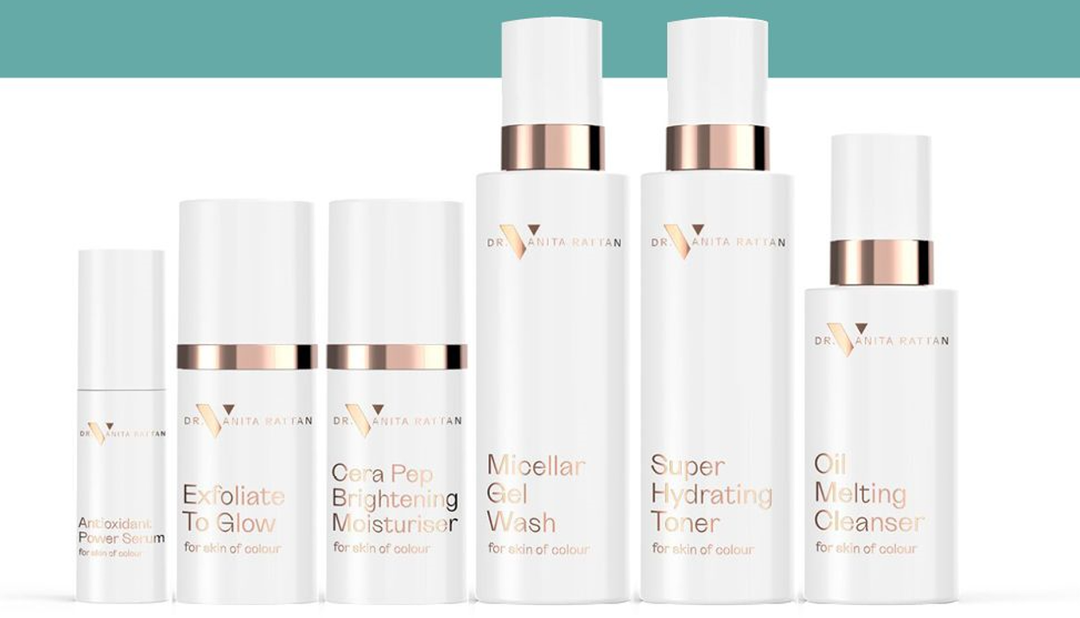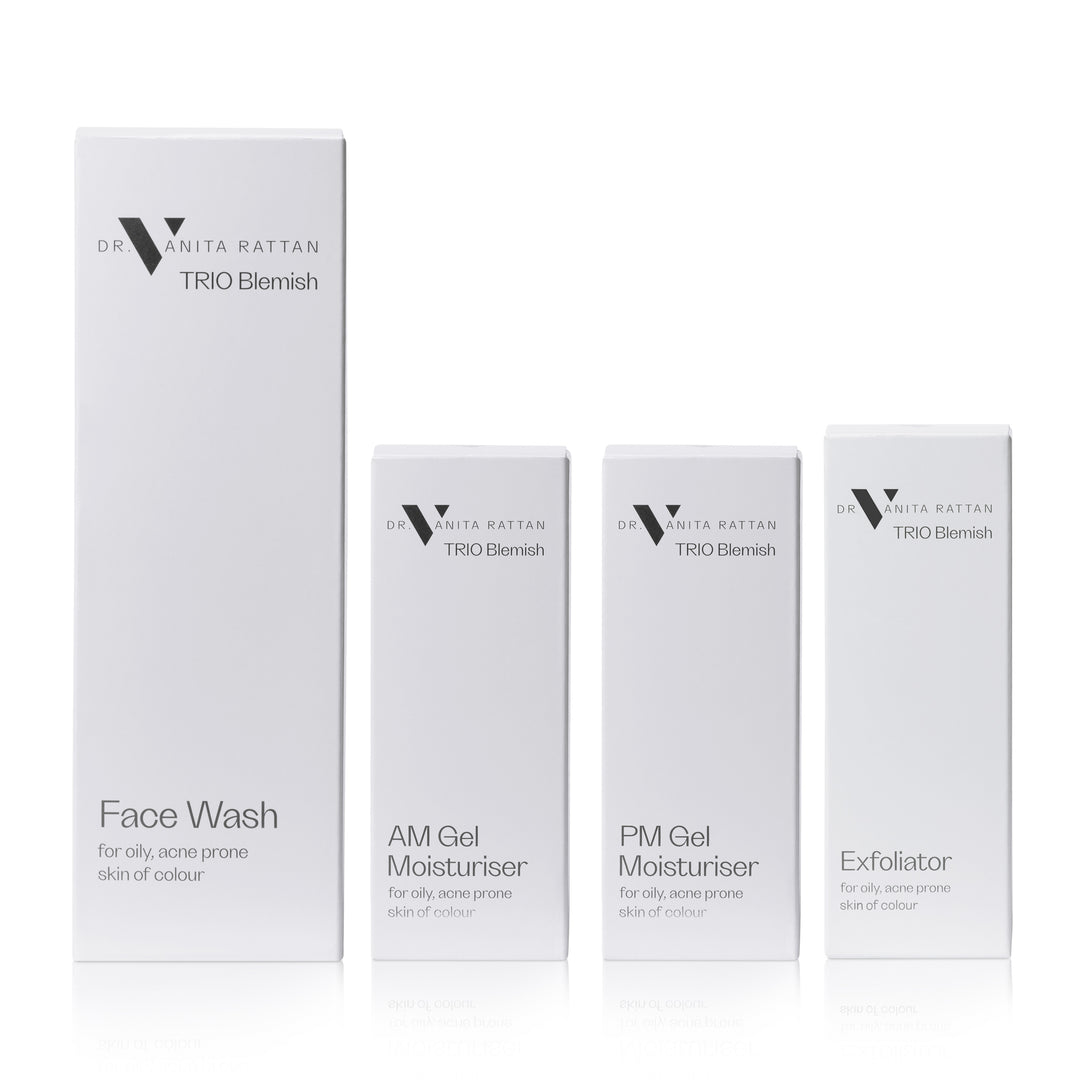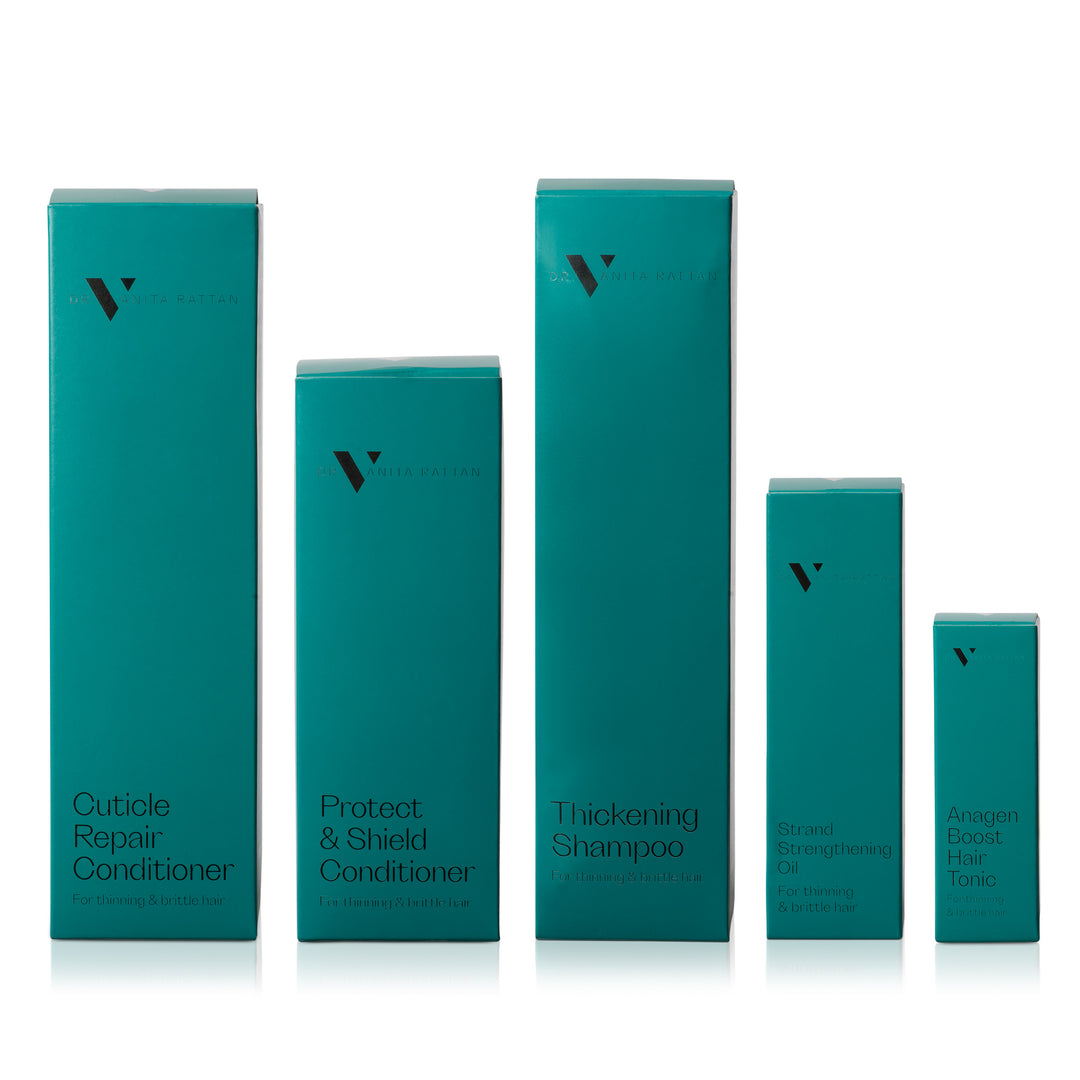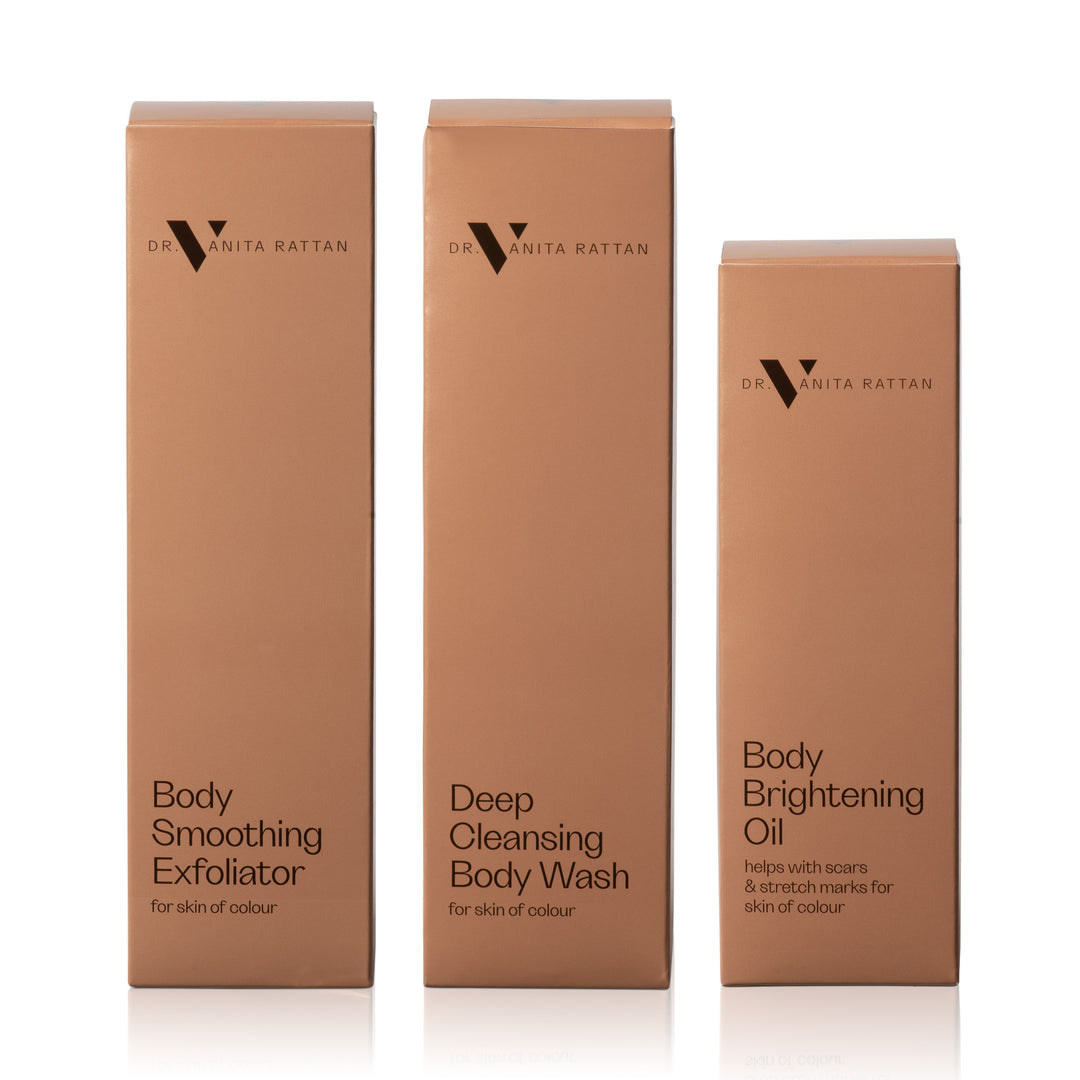7 Reasons Why You Could Be Experiencing Bad Skin

By Dr Vanita Rattan, June 2024
Have you ever wondered why your skin isn’t as clear and glowing as you’d like it to be? It turns out, there are several culprits that can throw your skin off balance and lead to issues such as acne, dryness, oiliness, uneven texture, or irritation. From your daily habits to the environment around you, I’ll share my top tips that will help you regain control over your skin's health and keep it looking it’s best.
1. You don’t know your skin type
Many people don’t have a clear understanding of their skin type, and this can cause them to use skincare products that are unsuitable. For example, individuals with oily skin might use skincare products containing oils, thinking it would reduce oiliness. Whereas individuals with dry skin might choose products that lack the essential ceramides and peptides to hydrate the skin, resulting in further discomfort.
Whilst deciphering whether your skin is oily, dry, combination or sensitive is crucial to form the basis of your skincare routine, it is also important to examine your skin tone. Darker skin tones are prone to hyperpigmentation due to overactive melanocytes, which can then manifest as dark spots, patches, or uneven pigmentation. As well as this, skin irritation is not always immediately visible in skin of colour as we experience less redness and facial flushing, so we need to be extra careful to avoid irritating the skin with drying alcohols, essential oils, and fragrance. 3-4% of the population get contact dermatitis from fragrance, and for skin of colour, this can lead to hyperpigmentation that can last for years. If you have skin of colour, I have formulated a Complete Daily Range for cleansing, skin brightening, anti-ageing and anti-pigmentation.
2. You’re using way too many products
When it comes to skincare, less is more. Using too many different products or applying a high percentage of ingredients can do more harm than good, causing increased sensitivity, irritation, and damage to the skin’s barrier. It’s important to know what you’re doing with your skincare routine, ensuring each product works synergistically instead of overwhelming the skin. A basic skincare routine, suitable for all skin types typically involves washing your face with a gentle, fragrance-free cleanser followed by moisturiser and SPF50. From there, you can expand your routine to address specific skin concerns. For example, if you have acne, you may want to incorporate our Trio Blemish Exfoliator 2-3 times a week to control sebum, help unclog pores and improve the appearance of acne.
3. You’re not protecting your skin enough
Your skin, being a vital organ, requires proper protection that goes beyond aesthetics. Exposure to UV rays extends beyond achieving a temporary tan, and overlooking the protection of your skin from sun damage can elevate the risk of developing melanoma, a potentially severe form of skin cancer. Applying a broad-spectrum SPF50+ daily helps to mitigate this risk, as well as help prevent against premature ageing, uneven skin tone and dehydrated skin. I would advise to opt for mineral sunscreens over chemical sunscreens as they contain the anti-inflammatory compound Zinc Oxide. My go-to product is our Inzincable SPF50, which doesn’t leave a white cast for skin of colour, and doesn’t enter the bloodstream for pregnant women. This will shield you from both UVA and UVB radiation, with the highest sun protection rating of PA++++.
4. You’re stressed
Your body is an interconnected system, meaning the state of your skin is closely intertwined with your overall wellbeing. If you’re stress levels are high, the body releases the hormone ‘cortisol’ which can cause more breakouts due to an increase in oil production, a breakdown of elastin, and redness due to increased blood flow. Stress is also responsible for inflammation in our body, exacerbating pre-existing skin conditions such as eczema and rosacea. As well as this, underlying chronic stress is often the cause of mental health conditions such as depression and anxiety which can cause individuals to neglect their everyday routines, including skincare. To combat stress ageing and maintain a healthy skincare routine, practice stress management techniques such as exercise, meditation and breathwork. As well as this, ensure you are getting 8 hours of sleep every day to give your skin, body, and mind time to rejuvenate.
5. You’re consuming way too much sugar
Consuming excessive amounts of sugar, often found in highly processed foods, can have a negative impact on your skin’s health. A high-sugar diet has very little nutrient value and can increase inflammation in the body, leading to worsened breakouts. As well as this, sugary foods can cause a spike in blood sugar levels, leading to an insulin release. Elevated insulin levels may stimulate the production of sebum, an oily substance that can clog pores and contribute to acne. With hyperglycaemia causing collagen damage, the skin can also appear dull, dry, and aged. Managing this involves reducing sugar intake and adopting an anti-inflammatory diet that includes oily fish, turmeric, flaxseed, ginger, garlic, green tea, and colourful vegetables.
6. Your showers are too hot
Hot showers might feel amazing in the moment, but it can strip your skin of its natural oils, leading to dryness and irritation. As well as this, the heat damages the keratin cells that make up the outer layer of the skin, weakening your skin’s ability to retain moisture. Not only can this damage your skin barrier, but this can result in flaky, dry patches on dehydrated skin. If you are prone to skin conditions such as eczema or psoriasis, hot showers can irritate the skin further, causing increased itchiness. Consider showering in lukewarm water or limiting your time spent in the hot shower, to help your skin retain its natural moisture. After showering, be sure to pat the skin dry instead of rubbing aggressively to prevent redness, itchiness or microtears. Finally, I would recommend applying a fatty moisturiser to lock in hydration.
7. You’re not consuming enough collagen
Collagen is the most abundant protein in the body, it gives structural integrity to the skin and is surrounded by water to support, smooth and firm the skin. It is also the main building block protein that forms your bones, skin, hair, muscles, tendons, and ligaments. The primary reason we tend to get superficial wrinkles is because of collagen loss. We lose 1% collagen every year from mid-20’s onwards, and this accelerates later in life, with women losing about 30% in the first five years of menopause and 2% every year afterwards. Topical collagen is often used as a humectant (a water magnet), but it cannot penetrate the epidermis into the dermis to stimulate collagen. Essentially, it’s a bit of marketing gimmick when marketers say there’s a collagen cream- people believe this will actually stimulate their collagen, when it won’t. Instead of topical collagen, orally consume Type 1 Hydrolysed Marine Collagen, which is the highest bioavailability type of collagen powder on the market. Opt for 8g per serving, whether that’s blended in with your morning smoothie or a flavoured collagen with water. At SkincarebyDrV, we have also formulated a Vegan-Friendly Collagen option, containing Vitamin C and Iron too.


